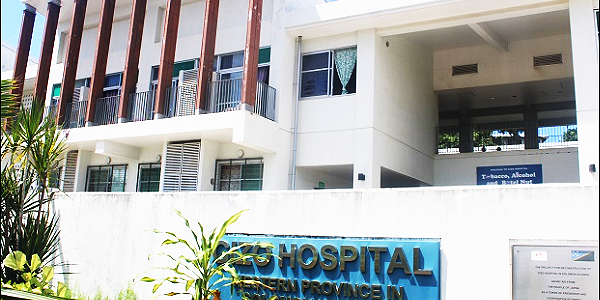The Gizo Hospital in the Western Provincial capital has been struggling with a severe medicine shortage especially the life-saving Malaria drug, leaving both patients and healthcare workers in a precarious situation.
For several months, the hospital has faced a critical shortage of malaria tablets, vital in a region where the disease is endemic and malaria PV cases are on the rise.
The shortage has hit patients requiring malaria treatment particularly hard. Malaria has claimed numerous lives each year and the current crisis is causing fear and forced many patients to seek alternative treatment options, often at their own expense, or to go without the necessary medication altogether.
Medical staff at Gizo Hospital has expressed deep concern over the prolonged shortage, highlighting the potentially devastating consequences for community health.
“We are doing everything we can with the resources available, but the situation is becoming increasingly dire,” one healthcare worker, who preferred to remain anonymous, shared in an interview with the Solomon Star over the weekend.
“Malaria is a major threat here, and without the proper medication, our ability to save lives is severely compromised.”
Gizo island and the surrounding neighboring islands often records high Malaria PV cases, the medical staff said.
While the root causes of the shortage remain unclear, reports suggest that supply chain disruptions, budgetary constraints, and logistical challenges directly affecting the Ministry of Health and the Solomon Islands Government (SIG) are contributing factors.
The situation underscores the broader challenges facing the healthcare system in the Solomon Islands, where access to essential medicines and medical supplies is often limited.
Hospital administration and the Western Provincial Health Authority have been alerted of the shortage crisis, but a concrete solution has yet to be implemented.
Residents of Gizo and the surrounding islands are urging the government to prioritize the restocking of essential medicines, particularly those needed to combat malaria.
When visiting Gizo Hospital’s Outpatient Department last week, nurses have been advising patients to take their prescription medicines and tablets directly to the pharmacy.
Unlike in the past, where medications were available at the outpatient unit, patients now must go straight to the pharmacy for their prescriptions.
It has been reported that when the Pharmacy Department distributes drugs and tablets to the Outpatient Unit, some nurses have been giving out more medication than the required amount, which further exacerbates the shortage.
Additionally, there have been alledged reports of a few medical staff selling malaria tablets for $85, a practice that has troubled patients who feel it is inappropriate for healthcare professionals to engage in.
Several patients, desperate for treatment, have purchased malaria tablets due to a lack of other options.
Doctors and nurses are now advising patients and the general public that in the absence of medication, home remedies and herbal medicines may be the only last resort for treating malaria.
As the shortage continues, the community remains hopeful that urgent action will be taken to address the issue and restore the supply of vital medications to Gizo Hospital.
Until then, the people of Western are left vulnerable, relying on a healthcare system strained by the ongoing crisis.
The drug shortage crisis is currently affecting many health centres nation-wide.
By Ulutah Gina
Solomon Star, Gizo









